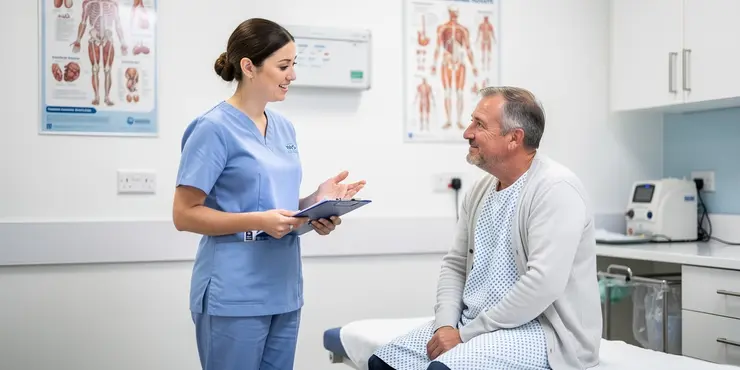
Find Help
More Items From Ergsy search
-
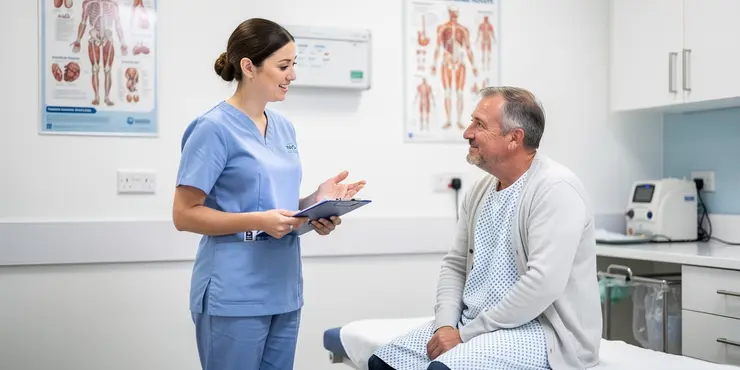
What should I avoid doing during the recovery period?
Relevance: 100%
-
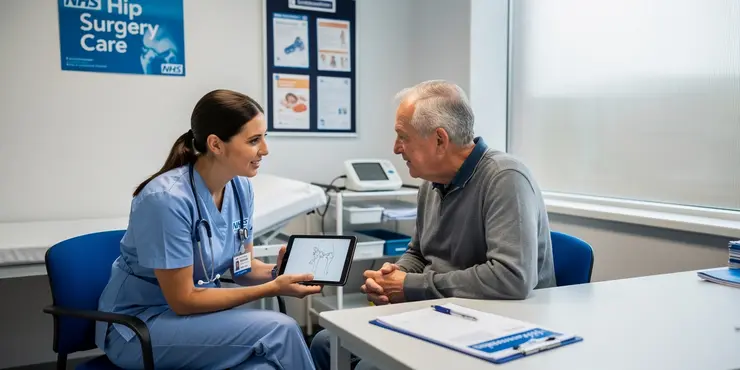
Enhanced Recovery - Hip
Relevance: 69%
-
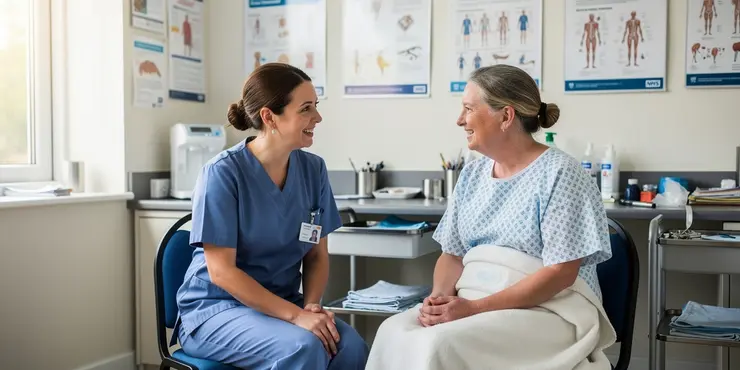
Enhanced Recovery YouTube
Relevance: 66%
-
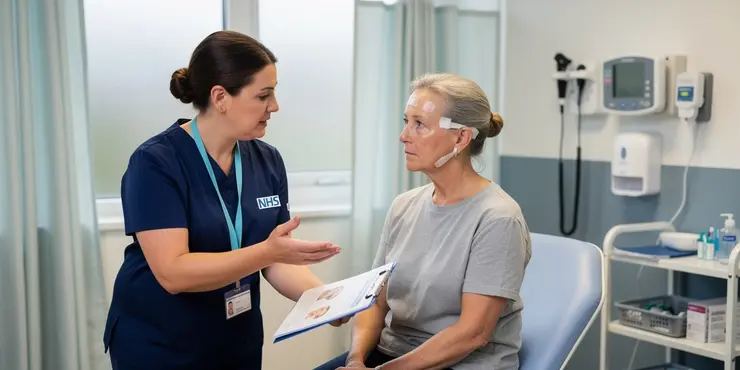
What is the recovery time for a facelift?
Relevance: 66%
-
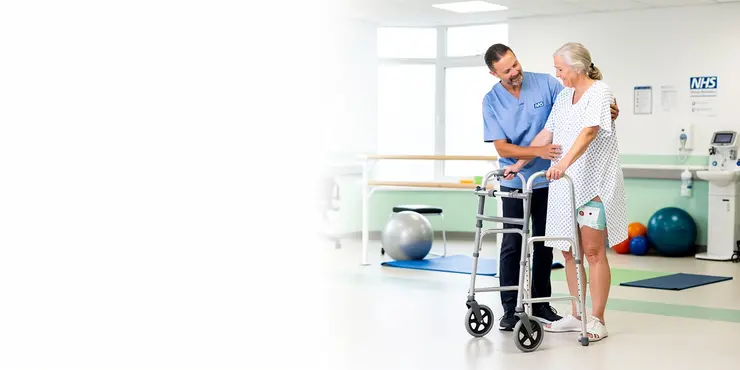
What is the recovery time for a hip replacement?
Relevance: 64%
-

Irregular periods - BSL
Relevance: 62%
-

How long is the recovery time after an appendectomy?
Relevance: 62%
-

How to deal with period pain | NHS
Relevance: 61%
-
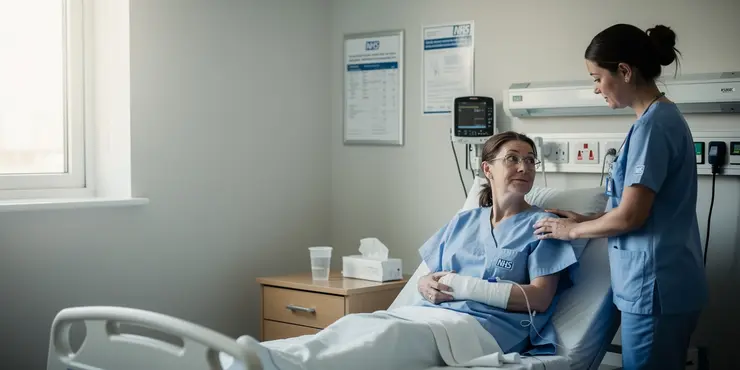
What is the recovery time after Carpal Tunnel Surgery?
Relevance: 61%
-

What is the notice period for redundancy?
Relevance: 59%
-

Period pain (dysmenorrhoea) - BSL
Relevance: 58%
-
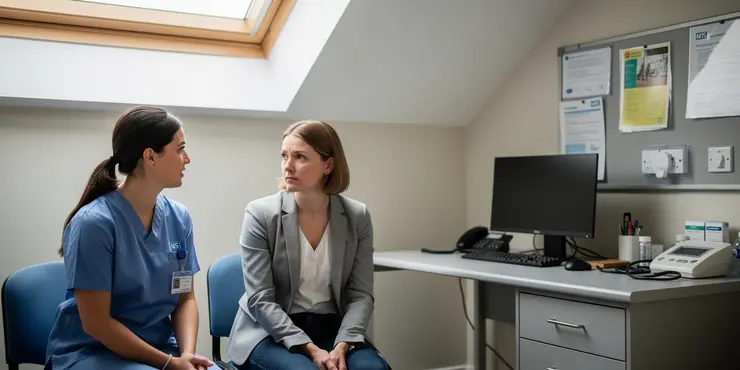
Why is it important to update my account recovery information?
Relevance: 57%
-
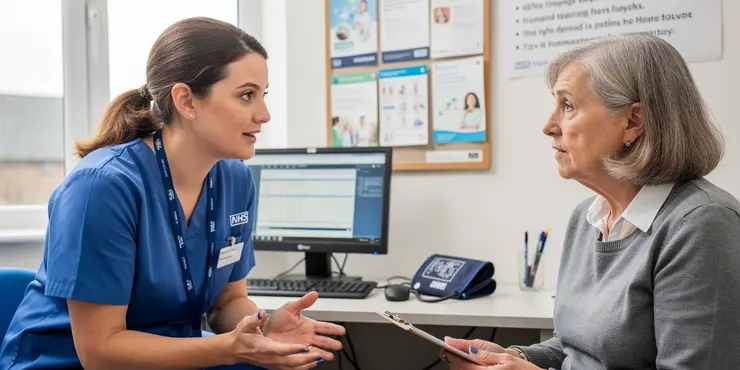
How long is the incubation period for the Marburg virus?
Relevance: 56%
-
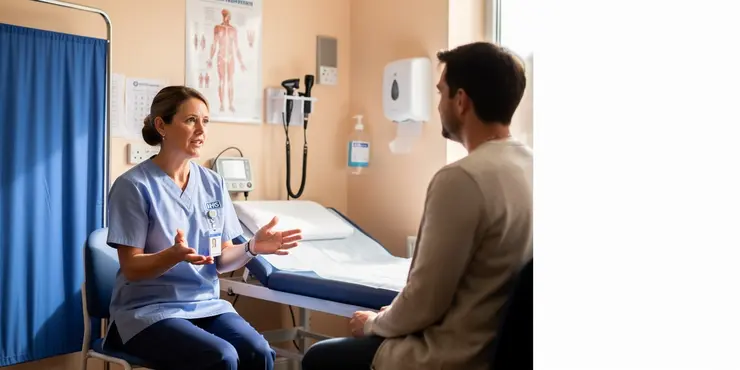
Has the notice period for eviction changed?
Relevance: 56%
-

How to deal with period pain | NHS
Relevance: 56%
-
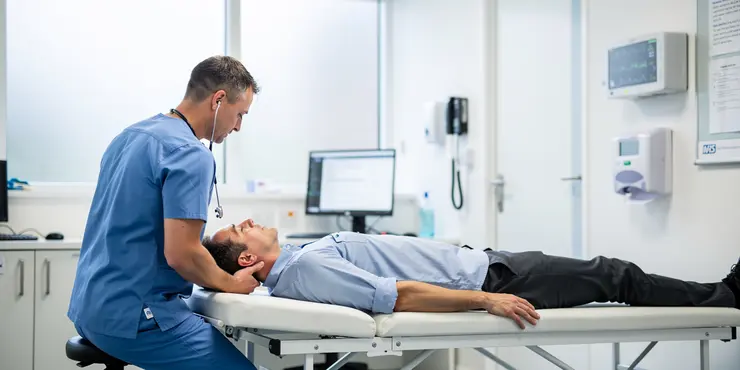
How to put someone into the recovery position | NHS
Relevance: 56%
-
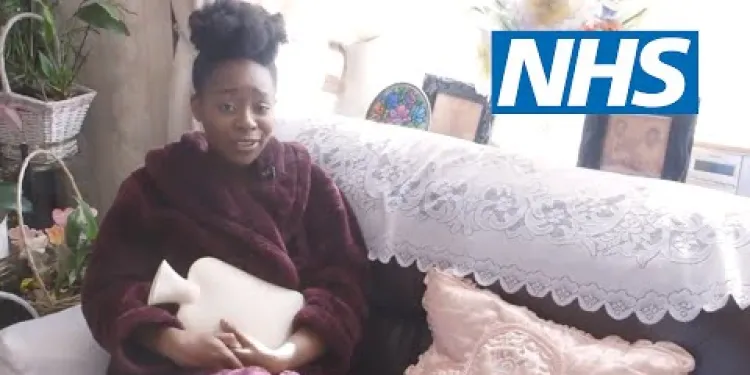
How to deal with period pain | NHS
Relevance: 56%
-

How to deal with period pain | NHS
Relevance: 56%
-
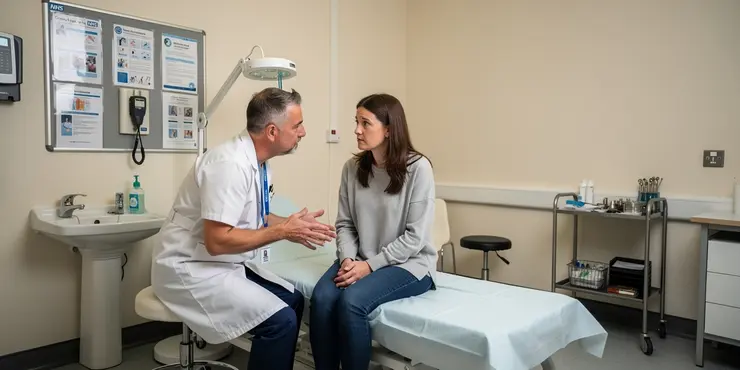
Can Marburg virus disease recur after recovery?
Relevance: 55%
-
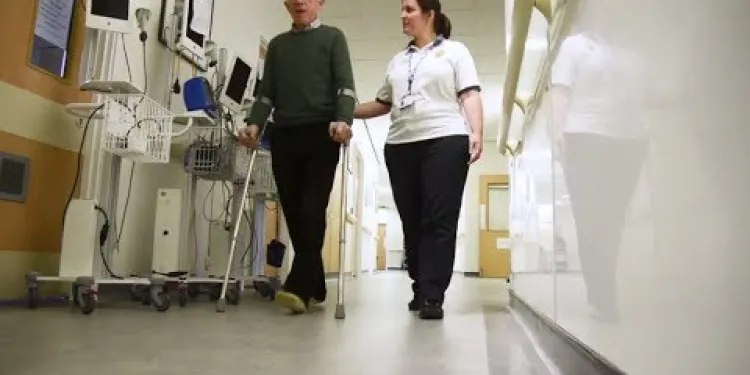
Having a hip replacement - Part Two: Recovery
Relevance: 55%
-
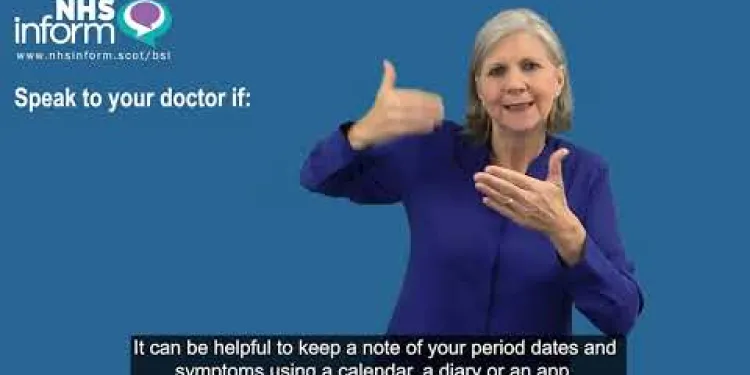
Heavy periods (heavy menstrual bleeding)
Relevance: 54%
-

What role do family and friends play in the recovery process?
Relevance: 54%
-
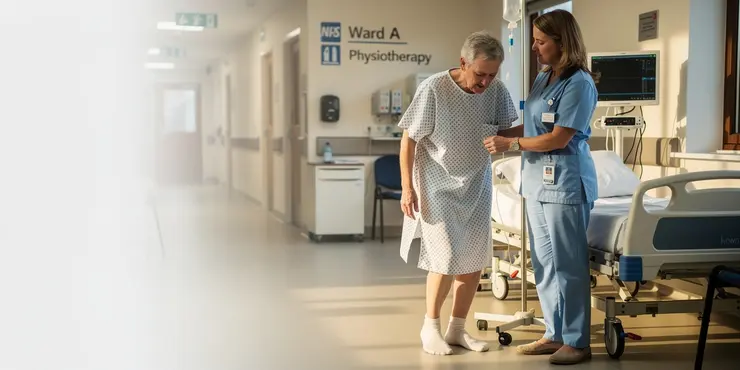
Enhanced Recovery After Surgery in Forth Valley
Relevance: 53%
-

What is the grace period for the penalty point system?
Relevance: 53%
-
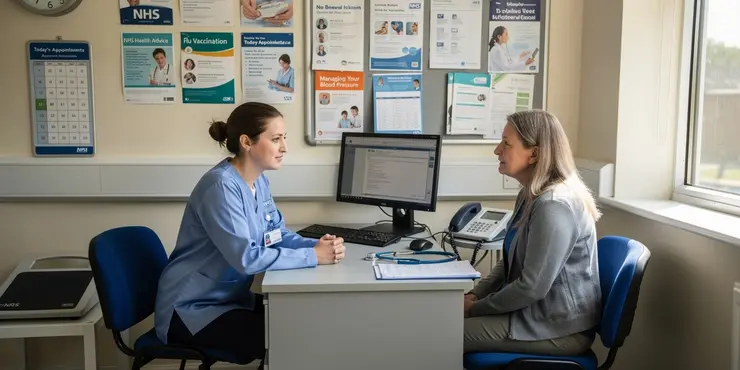
Why have my email account recovery options changed without my knowledge?
Relevance: 53%
-
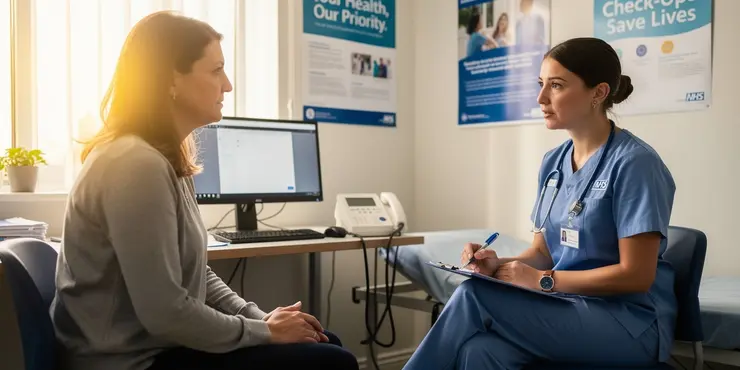
Can the test be performed during my menstrual period?
Relevance: 52%
-

What lifestyle changes can aid in prostate cancer recovery?
Relevance: 52%
-
Can air physiotherapy help with COVID-19 recovery?
Relevance: 52%
-

What you need to know about irregular periods
Relevance: 51%
-
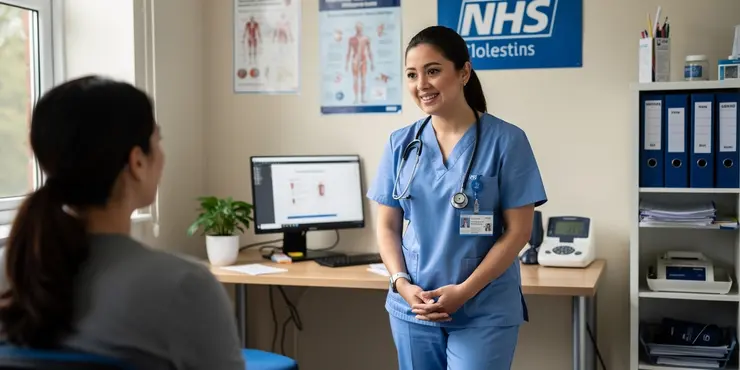
What happens when the introductory APR period ends?
Relevance: 51%
-

What is the recovery process like after a C-section?
Relevance: 51%
-

Is peeling a normal part of sunburn recovery?
Relevance: 49%
-
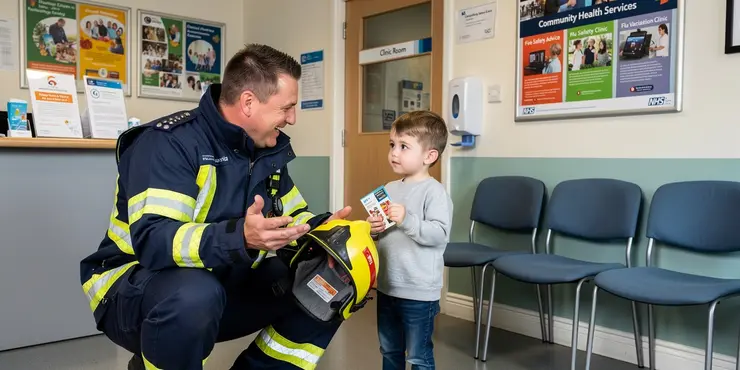
What is the minimum service period to qualify for firefighter pension benefits?
Relevance: 48%
-

How long is the incubation period for chickenpox?
Relevance: 45%
-
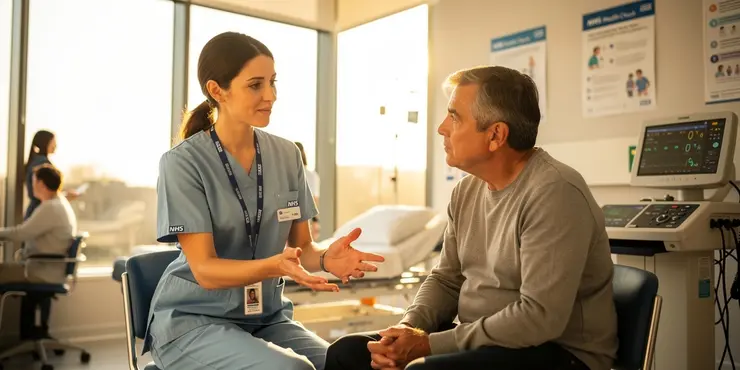
What if I have moved house since the claim period?
Relevance: 44%
-
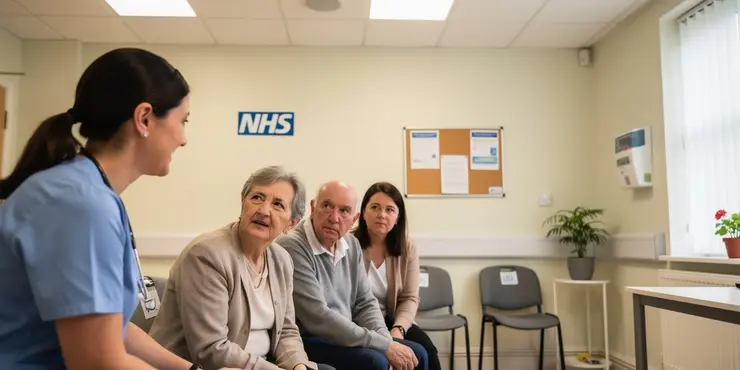
Does bereavement leave cover funerals for cultures or religions with extended mourning periods?
Relevance: 42%
-
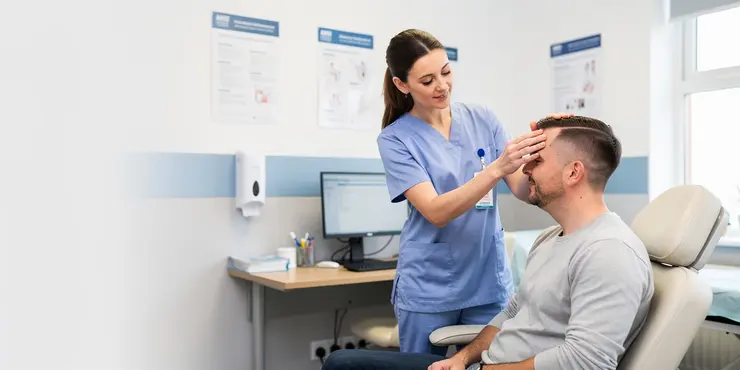
What is the recovery time after a hair transplant in Turkey?
Relevance: 32%
-
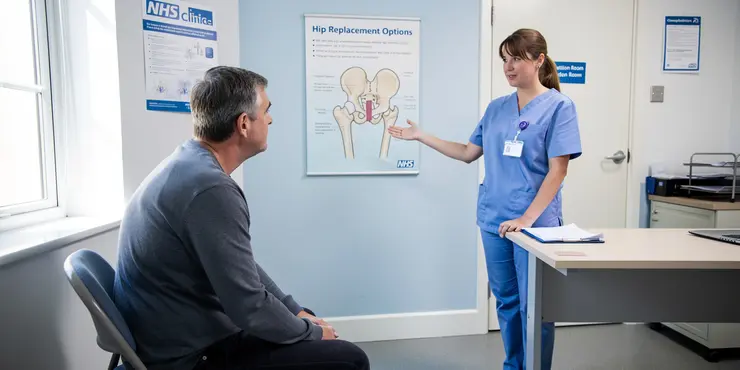
Can both hips be replaced at the same time?
Relevance: 29%
-
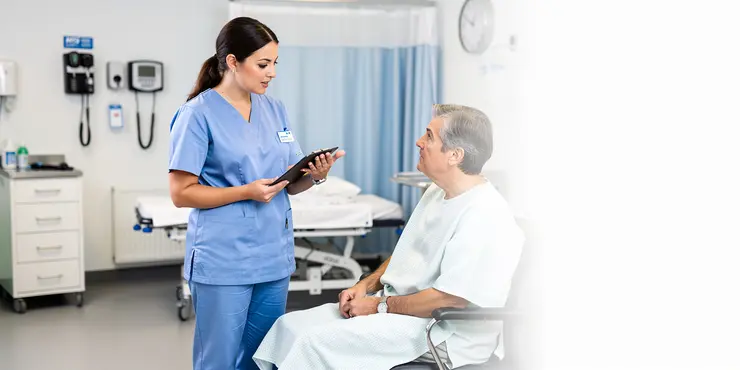
Is a facelift painful?
Relevance: 29%
-
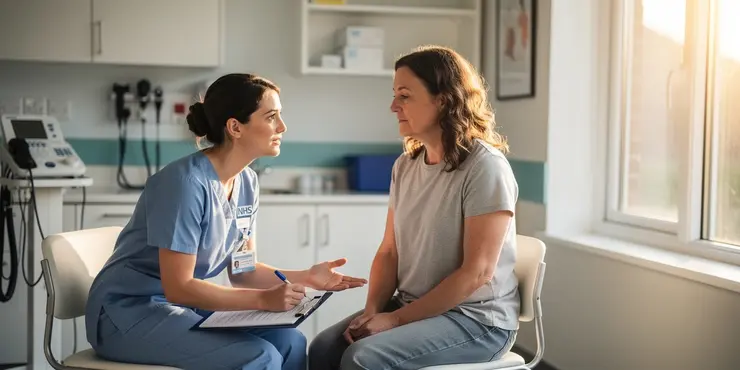
How soon can I return to work after a facelift?
Relevance: 27%
Introduction
The recovery period after an illness, surgery, or injury is a crucial time to ensure proper healing and prevent complications. Understanding what activities or behaviours to avoid is just as important as knowing what to do. Below are key points to consider during your recovery period to maximise your healing process.
Avoid Strenuous Activities
During recovery, it's important to limit any strenuous physical activities. This includes heavy lifting, intense exercise, and rigorous sports. These activities can put undue stress on healing tissues and potentially lead to setbacks in your recovery process. Follow your healthcare provider's advice on when and how to gradually reintroduce these activities into your routine.
Do Not Ignore Pain and Discomfort
Pain is a natural part of the healing process, but it should not be ignored, especially if it intensifies. Ignoring pain can aggravate your condition or mask more serious complications. Always communicate with your healthcare professional about any persistent or worsening pain, as this could indicate the need for adjustments in your treatment.
Avoid Poor Diet Choices
Nutrition plays a vital role in recovery. Avoid fast food, processed items, and sugary snacks. These can hinder your immune system and prolong recovery. Instead, focus on a diet rich in fruits, vegetables, lean proteins, and whole grains to promote healing and provide the necessary nutrients your body needs.
Limit Alcohol and Tobacco Use
Alcohol and tobacco can have negative effects on the recovery process. Alcohol can interfere with medications and increase the risk of bleeding, while tobacco can impair circulation and delay wound healing. It is advisable to avoid these substances altogether during recovery or seek guidance from your healthcare provider.
Don't Skip Follow-Up Appointments
Follow-up appointments with your healthcare provider are crucial for assessing recovery progress and addressing any concerns. Skipping these can lead to undetected complications or delayed recovery. Always attend scheduled check-ups and adhere to any additional advice given by your healthcare professional.
Avoid Overexertion
Overexertion, even in daily activities, can be detrimental during recovery. Activities such as cleaning the house, gardening, or carrying groceries should be approached with caution. Allow your body to rest as needed and prioritise getting adequate sleep to support the recovery process.
Conclusion
Recovery is a delicate process that requires careful attention to your body's needs and limitations. By avoiding the above activities and practices, you can contribute positively to your healing journey. Always follow specific medical advice tailored to your situation for the best recovery outcome.
Introduction
Getting better after being sick, having surgery, or getting hurt is important. It helps you heal well and stop more problems. Knowing what not to do is just as important as knowing what to do. Here are some simple tips to help you get better.
Avoid Strenuous Activities
When getting better, do not do hard physical activities. This means no lifting heavy things, exercising hard, or playing rough sports. These can hurt your body while it's healing. Always listen to your doctor about when you can start doing more activities again.
Do Not Ignore Pain and Discomfort
Feeling pain while you heal is normal, but don't ignore it if it gets worse. Ignoring it can make you worse. Always tell your doctor if you have pain that keeps getting worse. It might mean you need a change in your treatment.
Avoid Poor Diet Choices
Eating the right food is very important when you are recovering. Don't eat fast food or sugary snacks, as they can slow down your healing. Eat fruits, vegetables, lean meat, and whole grains to help your body get better.
Limit Alcohol and Tobacco Use
Alcohol and smoking can make healing take longer. Alcohol can mess with your medicine, and smoking can slow down how well cuts heal. Try to stop using these while you heal, or ask your doctor for help.
Don't Skip Follow-Up Appointments
Going to your doctor appointments after you start healing is very important. Missing them can mean problems are not found. Always go to your check-ups and listen to what your doctor says to help you recover fully.
Avoid Overexertion
Doing too much, even with small tasks, can be bad during recovery. Things like cleaning or carrying groceries should be done carefully. Rest often and get enough sleep to help your body heal.
Conclusion
Getting better takes time and care. By avoiding these activities, you help your body heal. Always follow what your doctor tells you for the best recovery.
Frequently Asked Questions
Can I engage in strenuous exercise after surgery during recovery?
No, avoid strenuous exercise during the recovery period to prevent injury and allow your body to heal properly.
Is it okay to smoke or consume alcohol while recovering?
No, avoid smoking and alcohol as they can negatively impact healing and increase the risk of complications.
Should I avoid driving immediately after surgery?
Yes, avoid driving until your doctor gives you clearance, as medications and discomfort can impair your ability to drive safely.
Can I shower or bathe right after surgery?
Avoid showering or bathing until your doctor advises that it is safe, especially if you have incisions.
Should I avoid lifting heavy objects during recovery?
Yes, avoid lifting heavy objects to prevent strain on your body and surgical sites during the initial recovery period.
Is it advisable to ignore pain or discomfort during recovery?
No, do not ignore pain or discomfort. Communicate any concerns with your healthcare provider.
Can I resume my regular diet immediately after surgery?
Avoid jumping back to your regular diet without guidance, as some surgeries may require dietary restrictions.
Should I skip follow-up appointments after surgery?
Never skip follow-up appointments, as they are crucial for monitoring your recovery progress.
Is it important to abstain from sexual activity during recovery?
Yes, abstain from sexual activity if advised by your doctor, to avoid complications.
Should I avoid self-medicating during the recovery period?
Yes, avoid self-medicating and always follow your doctor’s prescription to ensure proper healing.
Can I ignore signs of infection during recovery?
No, do not ignore signs of infection such as fever, increasing redness, or swelling and report them to your doctor immediately.
Is it necessary to avoid exposure to sunlight on healing wounds?
Yes, avoid exposing healing wounds to sunlight as it can cause scarring and delays in healing.
Should I refrain from using hot tubs and swimming pools during recovery?
Yes, avoid using hot tubs and swimming pools until your doctor says it's safe to prevent infection.
Can I skip wearing support garments if they are uncomfortable?
No, do not skip wearing support garments if they are recommended as they aid in recovery.
Is it advisable to avoid overexerting myself even if I feel good?
Yes, avoid overexerting yourself even if you feel better, as your body still needs time to heal fully.
Should I avoid ignoring mental health during the recovery period?
Yes, prioritize your mental health and seek support if needed during recovery.
Is it recommended to avoid neglecting proper wound care?
Yes, do not neglect proper wound care to ensure optimal healing and prevent infection.
Can I avoid necessary dietary changes if I find them difficult?
No, adhere to necessary dietary changes to support your recovery and health.
Should I avoid delaying asking questions or expressing concerns to my doctor?
No, always communicate openly and promptly with your doctor regarding any concerns during recovery.
Can I skip following post-operative instructions if I feel recovery is going well?
No, always follow post-operative instructions carefully, regardless of how well you feel.
Can I do hard exercise after my surgery?
After surgery, your body needs time to heal. Doing hard exercise too soon can make healing take longer or cause problems. It's important to take it easy and follow your doctor's advice.
Here are some tips:
- Talk to your doctor before starting any exercise.
- Start with gentle activities like walking.
- Listen to your body. If something hurts, stop and rest.
- Use a timer or ask someone to help you remember when to take breaks.
- Write down your progress in a journal. This can help you see how much you are improving over time.
Take care and let your body heal. It's okay to go slow!
No, do not do hard exercise while you are getting better. This helps stop injury and lets your body heal well.
Can I smoke or drink alcohol while getting better?
When you are trying to get better after being sick or hurt, it is best not to smoke or drink alcohol. Smoking and drinking can slow down how fast you heal.
If you need help to stop smoking or drinking, you can talk to a doctor or a support group to get help.
No, do not smoke or drink alcohol. These can make it harder for your body to heal and can cause more problems.
Can I drive right after surgery?
If you just had surgery, it might not be safe to drive. Your body needs time to heal.
Here are some things to think about:
- You might still feel sleepy from medicine.
- You could have pain or feel weak.
- Your doctor can tell you when it's okay to drive again.
Ask someone else to drive you until you feel better. Use a calendar to keep track of your progress and when you might drive again.
Do not drive until your doctor says it is okay. Medicine and feeling sore can make it hard to drive safely.
Can I take a shower or bath right after surgery?
After surgery, wait before you take a shower or bath. Ask your doctor when it is okay to do so. They will tell you the right time.
You can use a damp washcloth to clean your face and hands. Be very gentle and careful.
Ask someone for help if you need it. A family member or friend can help you stay safe.
Don't take a shower or bath until your doctor says it's okay. This is important if you have cuts from surgery.
Is it okay to lift heavy things while getting better?
Yes, do not lift heavy things so your body can heal. This will help your body and any spots where you had surgery to get better.
Should you ignore pain when getting better?
No, you should not ignore pain when you are getting better. Pain is your body’s way of telling you something is wrong.
If you feel pain, stop and rest. Tell someone how you feel. You can use ice or heat to help. Breathing exercises can help you feel better too.
Always talk to a doctor or a helper about your pain.
No, do not ignore pain or feeling uncomfortable. Talk to your doctor or nurse if you are worried.
Can I eat my usual food right after surgery?
Don't start eating your normal food again without talking to your doctor. After some surgeries, you might need to eat special foods.
Do I need to go to the doctor after my operation?
After you have surgery, your doctor might want to see you again. These visits are called follow-up appointments.
It is very important to go to these appointments. They help your doctor check if you are healing well.
If you have any questions or worries, it is a good time to talk to your doctor.
Some things that can help you remember your appointments are writing them on a calendar or setting reminders on your phone.
Always go to your follow-up doctor visits. These visits help the doctor see how well you are getting better.
Should you not have sex while getting better?
If your doctor says to, it is important not to have sex. This will help keep you safe and prevent problems.
Is it okay to take medicine by myself when I am getting better?
It's best to ask your doctor before you take any medicine on your own. They can tell you what is safe.
Try using a calendar or alarm to remind you when to take your medicine.
Don't take medicine on your own. Always listen to what your doctor says to get better. Follow their instructions.
Should I pay attention to signs of infection when getting better?
If you see signs of infection, tell a doctor or nurse. These signs can be redness, swelling, pain, or hot skin. It's important to get help to feel better soon.
You can use tools like a thermometer to check for fever. Drawing or writing in a diary can also help you track changes.
If you see signs that you might be sick, like having a fever, or if your skin is getting more red or swollen, don't ignore it. Tell your doctor right away.
Here are some things that might help you:
- Write down what you are feeling, so you don't forget.
- Ask someone to help you call the doctor.
- If it's hard to talk, you can use pictures to show how you feel.
Do you need to stay out of the sun if you have a cut or a healing wound?
Yes, keep healing wounds out of the sun. The sun can make scars worse and slow down healing.
Can I use hot tubs and swimming pools while getting better?
Don't use hot tubs or swimming pools until your doctor says it's okay. This will help you stay safe from getting sick.
Do I have to wear support garments if they don't feel nice?
No, don't skip wearing support clothing if the doctor says you should wear them. They help you get better.
Should I stop if I'm doing too much, even if I feel okay?
Here are some tips to help you understand:
- Listen to Your Body: If you feel tired, it's okay to rest.
- Take Breaks: Remember to take breaks and don’t do too much at once.
- Get Help: Ask someone if you're not sure what to do.
Yes, do not do too much work, even if you feel good. Your body needs time to get all better.
Is it bad to ignore mental health while getting better?
Yes, it is important to take care of your mind. Ask for help if you need it while getting better.
Should you take care of cuts and wounds?
Yes, taking care of a cut or wound is very important. It helps it heal well and stops germs from making it worse.
Can I skip changing my diet if it's too hard?
No, you should stick to the diet changes you need. This will help you get better and stay healthy.
Is it okay to wait before asking my doctor questions or telling them my worries?
No, it is best not to wait. Here’s what you can do:
- Ask your questions when you see your doctor.
- Write your worries down so you don't forget.
- Bring a friend or family member to help you talk to the doctor.
- Use simple words to say how you feel.
No, always talk to your doctor right away if you have worries after your treatment. It is important to share your concerns. You could use a notebook to write down your thoughts, or ask a friend to help you talk to your doctor.
Can I stop following doctor's instructions after my surgery if I feel better?
It is important to keep following your doctor's instructions.
Even if you feel good, these instructions help you heal.
For support, ask a friend or family member to help you remember what to do, or use a checklist to track your progress.
No, you must follow the doctor's instructions after your operation, even if you feel good.
Useful Links
This website offers general information and is not a substitute for professional advice.
Always seek guidance from qualified professionals.
If you have any medical concerns or need urgent help, contact a healthcare professional or emergency services immediately.
Some of this content was generated with AI assistance. We’ve done our best to keep it accurate, helpful, and human-friendly.
- Ergsy carfully checks the information in the videos we provide here.
- Videos shown by Youtube after a video has completed, have NOT been reviewed by ERGSY.
- To view, click the arrow in centre of video.
- Most of the videos you find here will have subtitles and/or closed captions available.
- You may need to turn these on, and choose your preferred language.
- Go to the video you'd like to watch.
- If closed captions (CC) are available, settings will be visible on the bottom right of the video player.
- To turn on Captions, click settings .
- To turn off Captions, click settings again.
More Items From Ergsy search
-

What should I avoid doing during the recovery period?
Relevance: 100%
-

Enhanced Recovery - Hip
Relevance: 69%
-

Enhanced Recovery YouTube
Relevance: 66%
-

What is the recovery time for a facelift?
Relevance: 66%
-

What is the recovery time for a hip replacement?
Relevance: 64%
-

Irregular periods - BSL
Relevance: 62%
-

How long is the recovery time after an appendectomy?
Relevance: 62%
-

How to deal with period pain | NHS
Relevance: 61%
-

What is the recovery time after Carpal Tunnel Surgery?
Relevance: 61%
-

What is the notice period for redundancy?
Relevance: 59%
-

Period pain (dysmenorrhoea) - BSL
Relevance: 58%
-

Why is it important to update my account recovery information?
Relevance: 57%
-

How long is the incubation period for the Marburg virus?
Relevance: 56%
-

Has the notice period for eviction changed?
Relevance: 56%
-

How to deal with period pain | NHS
Relevance: 56%
-

How to put someone into the recovery position | NHS
Relevance: 56%
-

How to deal with period pain | NHS
Relevance: 56%
-

How to deal with period pain | NHS
Relevance: 56%
-

Can Marburg virus disease recur after recovery?
Relevance: 55%
-

Having a hip replacement - Part Two: Recovery
Relevance: 55%
-

Heavy periods (heavy menstrual bleeding)
Relevance: 54%
-

What role do family and friends play in the recovery process?
Relevance: 54%
-

Enhanced Recovery After Surgery in Forth Valley
Relevance: 53%
-

What is the grace period for the penalty point system?
Relevance: 53%
-

Why have my email account recovery options changed without my knowledge?
Relevance: 53%
-

Can the test be performed during my menstrual period?
Relevance: 52%
-

What lifestyle changes can aid in prostate cancer recovery?
Relevance: 52%
-
Can air physiotherapy help with COVID-19 recovery?
Relevance: 52%
-

What you need to know about irregular periods
Relevance: 51%
-

What happens when the introductory APR period ends?
Relevance: 51%
-

What is the recovery process like after a C-section?
Relevance: 51%
-

Is peeling a normal part of sunburn recovery?
Relevance: 49%
-

What is the minimum service period to qualify for firefighter pension benefits?
Relevance: 48%
-

How long is the incubation period for chickenpox?
Relevance: 45%
-

What if I have moved house since the claim period?
Relevance: 44%
-

Does bereavement leave cover funerals for cultures or religions with extended mourning periods?
Relevance: 42%
-

What is the recovery time after a hair transplant in Turkey?
Relevance: 32%
-

Can both hips be replaced at the same time?
Relevance: 29%
-

Is a facelift painful?
Relevance: 29%
-

How soon can I return to work after a facelift?
Relevance: 27%


